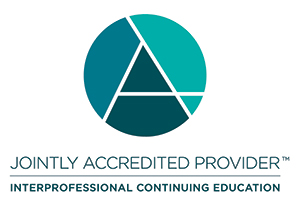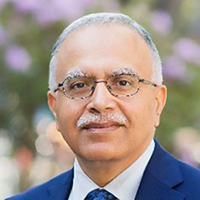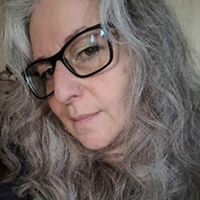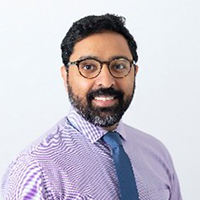Please note: AABB reserves the right to make updates to this program.
Wednesday, July 8, 2026
2:00 – 3:00 PM Eastern Time
Program Number: 26EL-654
Director/Moderator: Andrew Jones, MD, CABP, Laboratory Director, UCSF Benioff Children's Hospital Oakland, Oakland, CA
Speakers:
The thalassemia syndromes constitute the most frequent inherited anemias managed with chronic red cell transfusion worldwide. The prevalence of thalassemia in the United States has increased with individuals exhibiting a wide spectrum of disease expression. The twin objectives of transfusion management of thalassemia are alleviating anemia and suppressing ineffective erythropoiesis. Transfusions are associated with the potential complications of iron overload, transfusion-transmitted infections, and alloimmunization. On the other hand, under-utilization of transfusion causes persistence of symptomatic anemia, hypersplenism, bone deformities, and poor quality of life. New transfusion guidelines that address the specific epidemiology and model of care of thalassemia in the U.S. have been published. This program will provide information on the pathophysiology and classification of thalassemia syndromes and the current clinical guidelines for chronic red cell transfusions, along with a patient-focused discussion of shared decision-making.
After participating in this educational activity, participants should be able to:
Registration includes access to both the live and on-demand version of this eCast.
If you are a facility interested in participating in this eCast, simply complete the Group Viewing registration form and AABB will provide detailed instructions to share with your team approximately one week prior to the live program (each team member to register for the program utilizing a promocode). For single viewers, simply click on the Register button below to register.
Please note: registration for the live eCast will close 1 hour prior to the eCast start time. If you register after this time, you will receive access to the on-demand eCast when it is available.
| Single Viewer | Register |
| Group Viewing | Register |
This activity is eligible for one (1) continuing education credit/contact hour for Physicians, California Nurses, California Lab Personnel, Florida Lab Personnel and General Participation credit. AABB reserves the right to reduce or increase the number of credits granted based on the final activity duration. For more information on each credit type please visit our Continuing Education Credits webpage.
There is no financial support for this activity.

In support of improving patient care, this activity has been planned and implemented by the Association for the Advancement of Blood & Biotherapies (AABB), which is jointly accredited by the Accreditation Council for Continuing Medical Education (ACCME), the Accreditation Council for Pharmacy Education (ACPE), and the American Nurses Credentialing Center (ANCC), to provide continuing education for the healthcare team.
Physicians (ACCME): AABB designates this live activity for a maximum of one (1) AMA PRA Category 1 CreditTM. AABB designates this enduring activity for a maximum of one (1) AMA PRA Category 1 CreditTM. Physicians should claim only the credit commensurate with the extent of their participation in the activity.
Claiming Credit
Live Activity - Upon completion of the live activity, you will receive instructions to complete your evaluation, which is necessary to claim credit and receive your certificate of attendance/completion (credit must be claimed by the date provided in the instructions). The evaluation can be found by logging into the AABB Education Platform.
Enduring Activity - Once the enduring (on-demand) program is available, you will receive instructions to access the AABB Education Platform. Upon completion of viewing the enduring activity, you will need to complete the evaluation, which is necessary to claim credit and receive your certificate of completion (credit must be claimed by the date provided in the AABB Education Platform).
Program & Credit Expiration Dates:
Disclosure Declaration
It is the policy of the Association for the Advancement of Blood & Biotherapies to ensure independence, balance, objectivity, and scientific rigor and integrity in all of its CE activities. Faculty must disclose to the participants any relationships with commercial companies whose primary business is producing, marketing, selling, re-selling, or distributing healthcare products used by or on patients. AABB has evaluated, identified, and mitigated any potential conflicts of interest through a rigorous content validation procedure, use of evidence-based data/research, and a multidisciplinary peer review process. The following information is for participant information only. It is not assumed that the presence of such relationships will have a negative impact on the presentations.
Disclosures for the planners of this event can be found here. Disclosures for the program faculty, peer reviewers, and AABB personnel are provided at the beginning of the program.
Dr. Andrew Jones is the Laboratory Director for the anatomic and clinical lab at the University of California San Francisco's Benioff Children's Hospital Oakland. He completed an anatomic and clinical pathology residency at UC Davis followed by a fellowship in transfusion medicine at UCSF. He has obtained AABB's Certified Advanced Biotherapies Professional credential and has served as a laboratory inspector for FACT. He is a member of the Podcast Team for AABB's monthly TRANSFUSION journal podcast.
 Dr. Ashutosh Lal is a professor of pediatrics at the University of California, San Francisco School of Medicine. He is the director of the UCSF Comprehensive Thalassemia Center and principal investigator of the Thalassemia Western Consortium, providing care to the largest population of individuals with thalassemia in the U.S. He is the director of the Hemoglobinopathy Reference Laboratory, which serves as the confirmatory testing facility for newborn hemoglobinopathy screening programs in California and other states. Dr. Lal is an editor of the Thalassemia International Federation guidelines for the management of alpha thalassemia. He served on the federal advisory committee on heritable disorders in newborns and children. His primary clinical focus is the management of thalassemia among all age groups, improving access to care for transfusion-dependent patients, and the management of iron overload. His research interests are the epidemiology, diagnosis, and natural history of thalassemia, complications of blood transfusion, iron chelation, globin gene therapy, clinical trials of disease-modifying agents, and global thalassemia care.
Dr. Ashutosh Lal is a professor of pediatrics at the University of California, San Francisco School of Medicine. He is the director of the UCSF Comprehensive Thalassemia Center and principal investigator of the Thalassemia Western Consortium, providing care to the largest population of individuals with thalassemia in the U.S. He is the director of the Hemoglobinopathy Reference Laboratory, which serves as the confirmatory testing facility for newborn hemoglobinopathy screening programs in California and other states. Dr. Lal is an editor of the Thalassemia International Federation guidelines for the management of alpha thalassemia. He served on the federal advisory committee on heritable disorders in newborns and children. His primary clinical focus is the management of thalassemia among all age groups, improving access to care for transfusion-dependent patients, and the management of iron overload. His research interests are the epidemiology, diagnosis, and natural history of thalassemia, complications of blood transfusion, iron chelation, globin gene therapy, clinical trials of disease-modifying agents, and global thalassemia care.
 Anne Rishon received her BSN from UCLA School of Nursing and her MSN/PNP from UCSF School of Nursing. She began her career in community health centers, Pediatrics and Adolescent Medicine. In 2007, she joined the UCSF Benioff Children's Hospital Oakland Medical Unit at the Alameda County Juvenile Justice Center and in 2018 she became a part of the Northern California Thalassemia Center at UCSF Benioff Children's Hospital Oakland. She spends the majority of her time in the infusion center working with children and adults who have transfusion dependent hemoglobinopathies and iron overload.
Anne Rishon received her BSN from UCLA School of Nursing and her MSN/PNP from UCSF School of Nursing. She began her career in community health centers, Pediatrics and Adolescent Medicine. In 2007, she joined the UCSF Benioff Children's Hospital Oakland Medical Unit at the Alameda County Juvenile Justice Center and in 2018 she became a part of the Northern California Thalassemia Center at UCSF Benioff Children's Hospital Oakland. She spends the majority of her time in the infusion center working with children and adults who have transfusion dependent hemoglobinopathies and iron overload.
 Dr. Madhav Vissa is a graduate of SUNY Downstate Medical Center and completed residency training in combined residency internal medicine and pediatrics at the University of Pittsburgh. He came to UCSF Benioff Children's Hospital Oakland for a fellowship in pediatric hematology/oncology, in part due to the large lifespan hemoglobinopathies program. Madhav cares for children and adults at UCSF Benioff Children's Hospital Oakland and Zuckerberg San Francsico General Hospital and works to standardize care delivery across the health system for sickle cell disease and thalassemia.
Dr. Madhav Vissa is a graduate of SUNY Downstate Medical Center and completed residency training in combined residency internal medicine and pediatrics at the University of Pittsburgh. He came to UCSF Benioff Children's Hospital Oakland for a fellowship in pediatric hematology/oncology, in part due to the large lifespan hemoglobinopathies program. Madhav cares for children and adults at UCSF Benioff Children's Hospital Oakland and Zuckerberg San Francsico General Hospital and works to standardize care delivery across the health system for sickle cell disease and thalassemia.